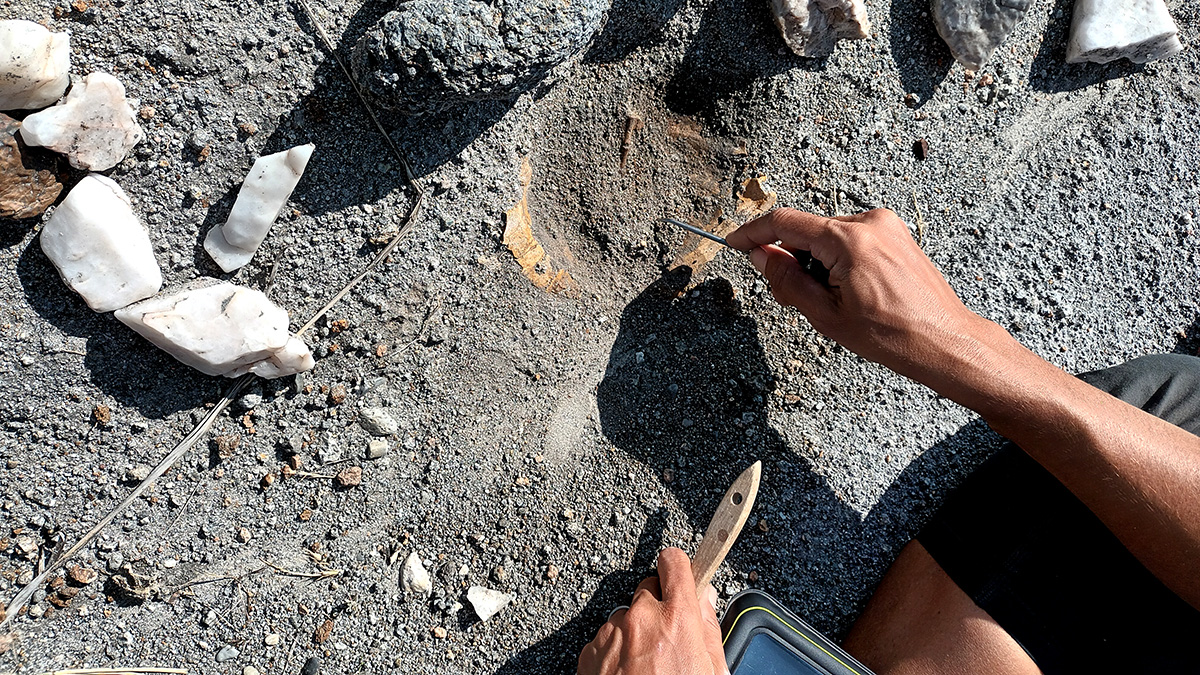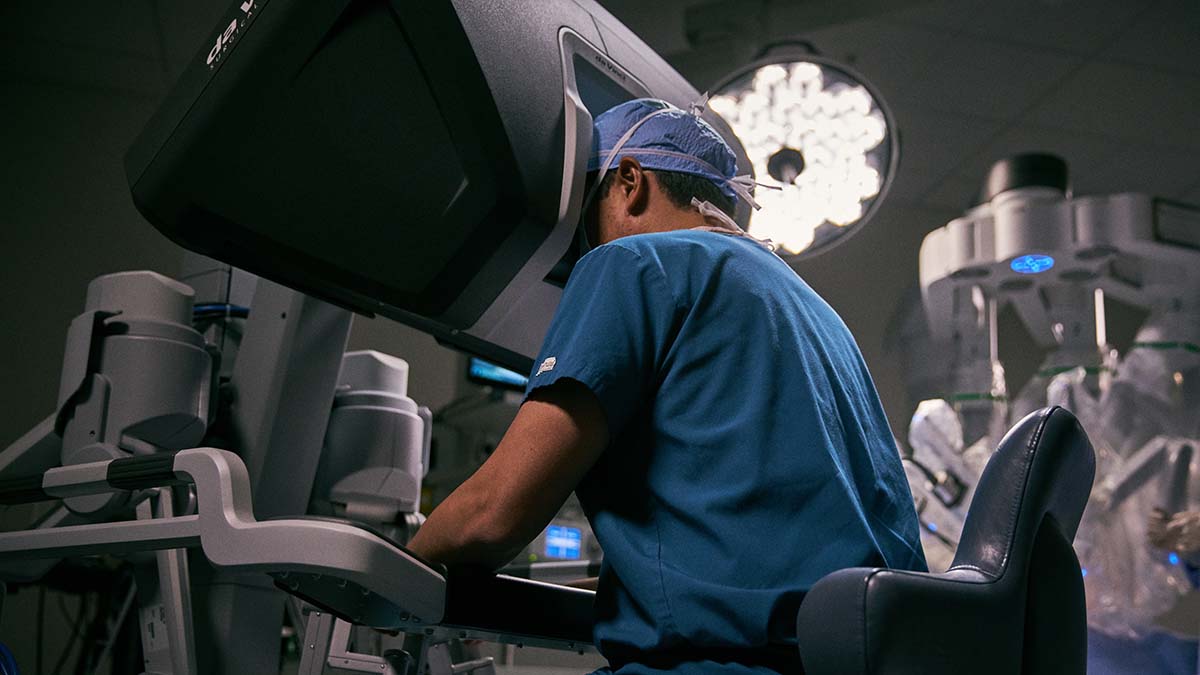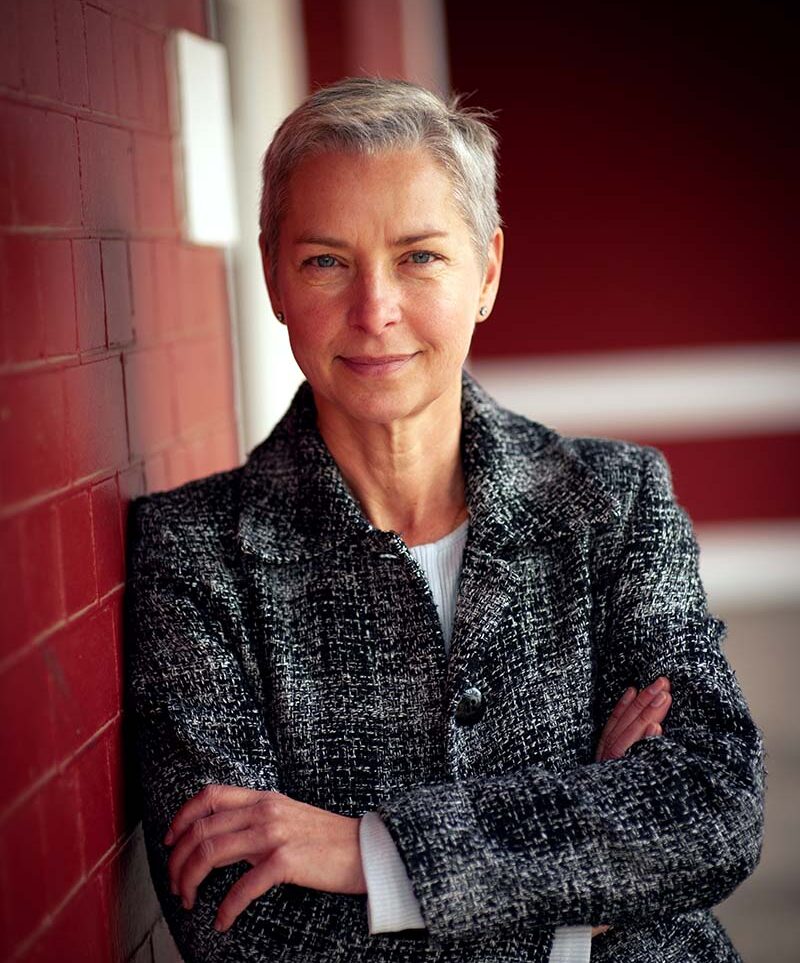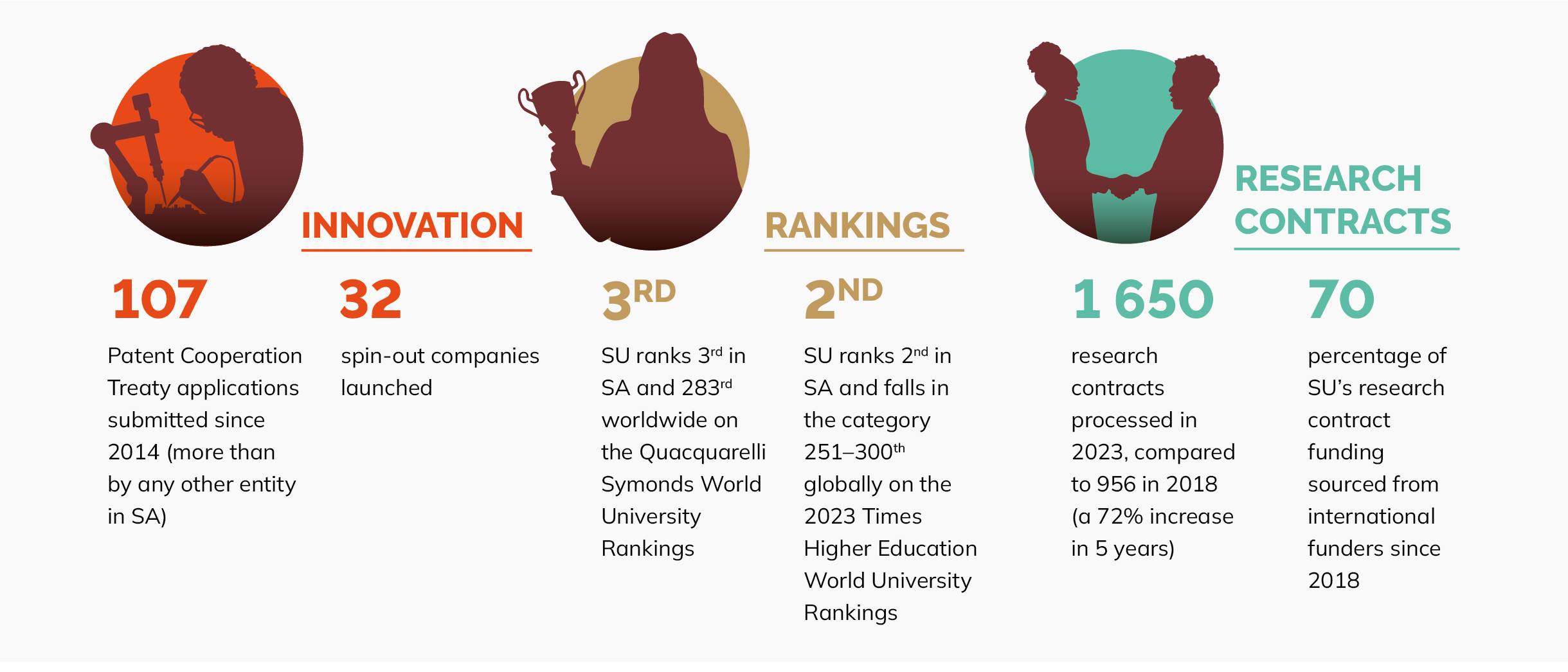




Dr Therina Theron | Photo by Erhardt Thiel
Our research approach
“At Stellenbosch University (SU), pushing the boundaries of knowledge and possibility is our focus.
“Our strategic research areas help ensure that our work connects the University with the rest of the world,” says Dr Therina Theron, SU’s senior director of research and innovation.
“We support our researchers in executing their core [institutional] mandate, which contributes to socioeconomic development. SU’s research mission is to stay future-focused and to maximise our impact.
“Ultimately, our research efforts are not only aimed at academic success but also at making a significant impact in the world.”
Our strategic research areas
SU has five strategic research areas that drive its institutional research agenda: the natural environment; health and human security; social justice and development; human creativity and social innovation; and systems and technologies for the future.
These strategic research areas were developed against the background of the United Nations’ Sustainable Development Goals, the African Union’s Agenda 2063 goals and the government’s National Development Plan.
“Together, these areas serve as the overarching ‘umbrella’ themes for our work,” Theron says. Read more about research, innovation and postgraduate studies at SU here.
Leading from the front
SU is positioning itself as a leading university on the continent. “The challenge for us is to be locally relevant, with regional impact, but also globally competitive. To achieve this goal, we need to continuously focus on the unique areas in which we have developed expertise over time and build collaborative networks with knowledge partners in South Africa, the rest of the continent and further afield.”
In this regard, interconnectedness and an inter- and transdisciplinary approach to research projects are important. “Our strategic research areas represent inclusive, broadscale areas of research expertise for the strengthening and development of specific transdisciplinary research focus areas," Theron says.
“Our focus is on interdisciplinary research that benefits society on a national, continental and global scale. At the same time, we are committed to basic and fundamental research excellence as it forms the basis for applied and translational research.”
Recent investments in inter- and transdisciplinary research outputs at the University include the establishment of the School for Data Science and Computational Thinking and the School for Climate Studies. Institutionally, these structures stand alongside the University’s 10 faculties.
Theron compares these new transdisciplinary entities to skyscrapers towering over a bustling urban landscape. “In a vibrant city, high-rise buildings often stand alongside smaller and older buildings, with roads and infrastructure crisscrossing in between. This urban landscape is diverse and constantly changing, just like our University.
“Our academic ‘skyscrapers’ focus on inter- and transdisciplinary work beyond traditional faculty borders. Together, our research entities ensure our uniqueness, competitive advantage and research outputs. They also generate knowledge in service of society.
“We value the diversity of our research expertise and unique strengths. Our strategic research plan recognises strong individual research efforts at the University that contribute to internationally acknowledged research outputs, as well as fundamental and basic research that forms the foundation of our ‘city’.
“In each of the chosen strategic research areas, the strength of the research efforts at SU lies in their diversity.”
Benefits to society
In terms of SU's Vision 2040 and Strategic Framework 2019–2024, ‘research for impact’ remains one of our core strategic themes. Doing research for impact implies optimising the scientific, scholarly, economic, social, cultural, technological and political influence of SU’s research.
The University is engaged in several efforts to establish a credible, responsible assessment measure for its research outputs. “This means looking at all kinds of metrics and indicators to assess the impact of our work. But metrics alone do not tell the full story of the impact of our research and the merit of our scholarly endeavours,” Theron emphasises.
“We are learning about knowledge exchange paths and impact outcomes at different stages of the research process. This is done by exploring the stories behind the research, which enriches our understanding of its impact and the processes that underpin it.”
“Research for impact relates not only to the societal impact of our work. Our research has a scholarly impact that helps build new knowledge over time. However, sometimes the applications and visible impacts on society follow much later only.”
High-quality research
Research excellence is, of course, a defining measurement of research for impact, Theron indicates.
SU has been rated among the top three universities in South Africa for at least seven years. In its annual research output report to the Department of Higher Education and Training, SU submitted a record number of articles in accredited journals – 1 669,5 units, to be specific – in respect of the 2020 publication year. This number placed SU in third position nationally. SU’s publication outputs include journal articles, books, chapters in books and conference proceedings.
SU also produced the highest number of books in the education sector and the second-highest number of conference proceedings. In terms of research productivity, SU had the third-highest number of annual research outputs per capita at 1,82, and the fourth-highest weighted research output per capita at 3,18.
“The quality and quantity of research at SU are on an upward trajectory,” Theron says.




Knowledge transfer
Globally, the movement is towards knowledge transfer, which is a broader concept than technology transfer. Theron says: “For us to move more towards knowledge transfer, we need to explore the impact of our research by doing research impact studies.
“If you think of innovation as being about knowledge exchange and not only, for instance, about the establishment of patents, the possibilities to illustrate the impact of our research also expand.”
Theron says investment in research and development remains key to ensuring a vibrant higher education sector that is able to address some of society’s most pressing challenges.
Currently, the University operates in an environment with huge competition for funding and a demand for public accountability, transparency and value for money.
Only 0,6% of South Africa’s gross domestic product is allocated for research and development. This low percentage of government spending on research (compared to the rest of the world) is now at the same level as in 1994.
For researchers, funding remains a key enabler. Increasingly, SU’s high-quality research efforts are generating significant investments in research collaborations, Theron points out.
“At the Division for Research Development, we work hard to help build equitable funding partnerships between research collaborators, here and abroad. These are partnerships in which our researchers play leading scientific roles, even if the funding comes from better-resourced global regions.”
In 2021, 1 446 research contracts were processed, compared to only 956 in 2018, constituting a 66% increase in 4 years. SU’s income from research contracts has also nearly doubled in the past 9 years, from about R500 million to R1 billion per year, of which 70% constitutes international funding.
“This kind of investment is an indication of the international footprint of our research,” Theron says. “Many large consortiums benefit tremendously from working with our experts.
“SU takes its investment in research for impact very seriously. We remain committed to producing research for impact and are in it for the long haul.”
Our strategic research areas
Useful links
Division for Research Development
Learn more about SU’s faculties here
Research for impact magazine 2022